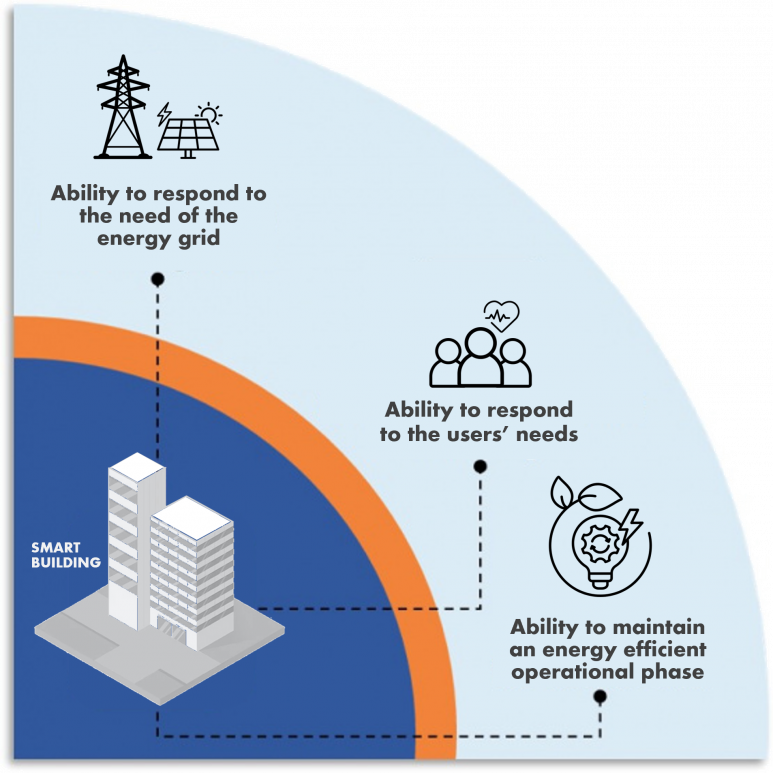Research
The main reserach lines of BAEDA lab are below described:
-
Data-analytics based Decision Support Systems for enhancing energy management in buildings
- Objective:
BAEDA lab conducts research on Decision Support Systems (DSS) with the aim of improving the effectiveness of analytics tools that can be embedded in such systems. DSS are enabling tools whose feedback is provided to a human user (e.g., energy manager, building owner, energy service company).To this purpose, relevant applications are focused on aspects related to the maximization of knowledge that can be extracted from building related data, its interpretability, and the way it is transferred to the human user. From single building to building stock level innovative applications such as fault detection and diagnosis, energy profiling, occupant management, multilevel and multidimensional benchmarking and visual analytics are subjects of investigations. The main objective of BAEDA lab is then revealing the real potential that DSSs have in the process of building energy management overcoming the barriers that today exist for their fully exploitation.
Reference persons for the research topic: Capozzoli Alfonso and Piscitelli Marco Savino (operation manager)
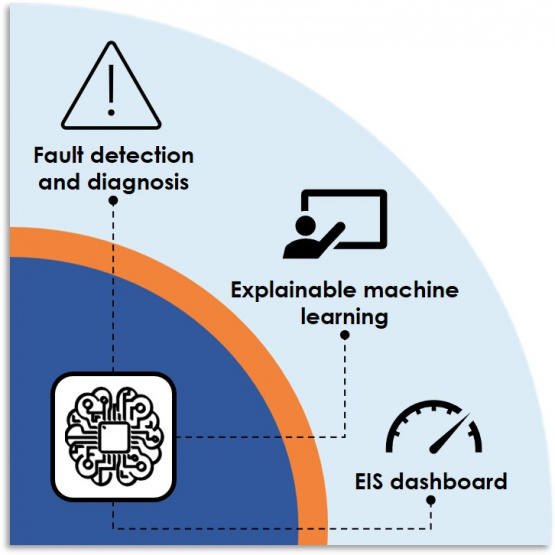
-
Adaptive control strategies to support novel paradigms of predictive energy management and optimisation in smart buildings
- Objective:
The optimal operation of buildings and their energy-related services is influenced by exogenous factors such as climate conditions, electricity prices and Demand Response programs, which all vary in time and can be affected by different degrees of uncertainty. Advanced building controllers, such as Deep Reinforcement Learning and Model Predictive Control, are able, differently from classical controllers, to consider trade-offs between multiple and often contrasting objectives such as indoor thermal comfort, energy consumption and grid requirements, and should autonomously learn to adapt to a changing environment, boundary conditions and constraints.
Reference persons for the research topic: Capozzoli Alfonso and Brandi Silvio (operation manager)
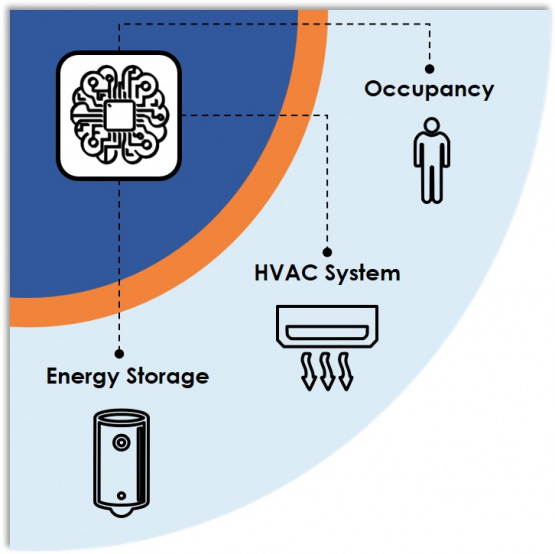
-
Enhancing energy flexibility in cluster of buildings through coordinated energy management
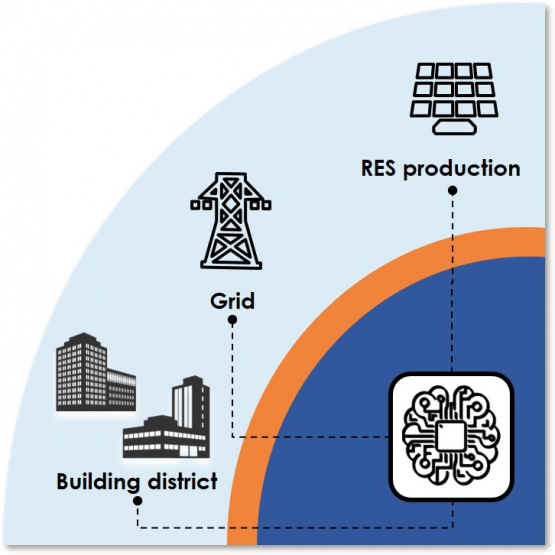
- Objective:
The integration of distributed renewable generation and storage is increasing the connection between production and consumption sides. Nowadays energy management is shifting its attention from a single building to a district of buildings, promoting collaboration among the different actors of the smart grids. In this framework, different architectures of energy management (distributed, centralised, or hierarchical) can be used to coordinate multiple buildings. Moreover, advanced energy management can leverage automated and adaptive algorithms, such as Deep Reinforcement Learning, to optimize and control grid-interactive buildings, easing the integration of distributed generation and increasing the participation to demand response programs in buildings.
Reference persons for the research topic: Capozzoli Alfonso and Brandi Silvio
-
Advanced control for active and responsive envelope components
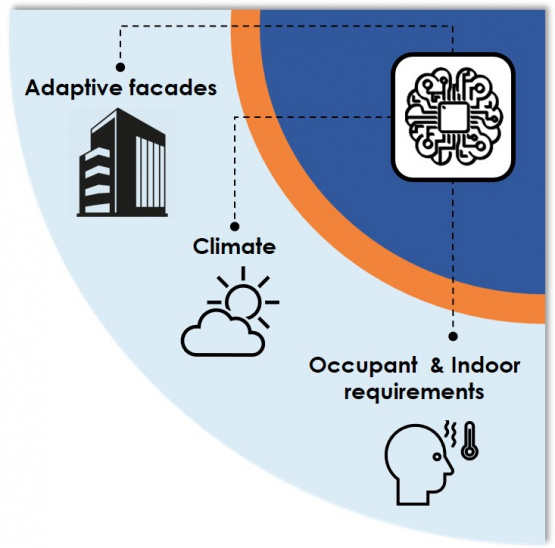
- Objective:
The building envelope has a major impact on building performance, due to its key role in regulating heat and mass transfer between the indoor and outdoor environment. Dynamic and responsive building envelope technologies enable to optimize building operations and performance according to everchanging boundary conditions (climate, energy pricing etc.) and indoor occupant requirements, by means of their capability to vary their thermo-optical properties in a reversible way. Nevertheless, such a dynamic building envelope needs to be controlled and operated in a synergic way with the HVAC and lighting system, adapting to and interacting with building occupants. Within this context the main research aim is to devise, design and implement effective ways of operating these physical systems to improve building performance through the deployment of virtual models and/or artificial intelligence.
Reference persons for the research topic: Capozzoli Alfonso and Favoino Fabio
-
Driving the European Digital Transition through the Smart Readiness Indicator
- Objective:
The recent developments in the geopolitical landscape, coupled with climate change, have brought the question of energy to the attention of the international community. The recent revision of the Energy Performance of Building Directive (EPBD IV – 1275/2024) has further consolidated the concept of digitalization in the building sector, which has emerged as a key element in the current energy transition. In 2018, the European Commission introduced the Smart Readiness Indicator (SRI), a metric designed to assess the degree of smart readiness of buildings. The SRI is intended to provide a means of evaluating the extent to which buildings are equipped with the necessary infrastructure and systems to support the digital and energy transition. Nevertheless, this metric relies on a qualitative assessment of the smart building's potential, neglecting to consider its actual performance in the operational phase. BAEDA Lab is pursuing the objective of enhancing the current SRI framework through the development of a data-driven methodology for assessing the actual intelligence of a building.
Reference persons for the research topic: Capozzoli Alfonso and Maggiulli Martina
